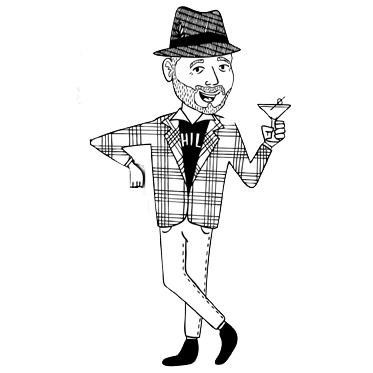Gonna start posting about the more interesting questions I ask each week. Here are a few fun facts from last week:
Q: Who had a hit with the song Keep on Loving You?
A: REO Speedwagon. Curious how they got the name? Band member Neal Doughty took a History of Transportation class in college. One day he walked into class, saw the words “REO Speedwagon” on the board, and went with it. The REO Speedwagon was a 1915 car made by Ransom Eli Olds, who also gave us Oldsmobile.

Q: If a US coin is marked with a D, it was minted in what city?
A: Denver actually produces the most coins of any mint in the world.
Q: What four letter word comes to us from carnival sideshows, where it described people who would bite the heads off of snakes and chickens?
Geek. The following is from the Geek Anthropologist: it wasn’t until sometime in the early 19th century that, “the Scottish word geck, meaning ‘fool,’ changed to geek and began being used to describe a certain kind of carnival performer. Geeks specialized in eating live animals, including biting the heads off live chickens”. According to the Online Etymology Dictionary, “The modern form and the popular use with reference to circus sideshow ‘wild men’ is from 1946, in William Lindsay Gresham’s novel Nightmare Alley”. Initially used to refer to a very specific type of carnival performer, the word soon became synonymous with freaks—that is, any individual who exhibited a physical trait that deviated from what was commonly understood within a society or culture as “normal.” Although the term designated a sense of social stigma and shame, circus and sideshow performers adopted the term “geek” as a collective and positive form of identity. While the general public could come to gawk at the freaks, performers referred to themselves as geeks, established in opposition to the norms and rubes in the audience.
Q: Because this 1995 rap hit heavily sampled Stevie Wonder, Stevie wouldn’t allow any cursing in it.

A: Gangsta’s Paradise, which sampled heavily from Stevie’s song Pasttime Paradise. Rolling Stone did a great oral history of the song a few years ago. This is from Coolio: “As I walk through the valley of the shadow of death/I take a look at my life and I see there’s nothing left” — I freestyled that; that came off the top of the dome and I wrote that down. I thought about it for a minute, and then I wrote the whole rest of the song without stopping, from the first verse to the third verse. You know, I like to believe that it was divine intervention. “Gangsta’s Paradise” wanted to be born; it wanted to come to life, and it chose me as the vessel.
I found this fascinating, because Steven King, in his terrific book On Writing, says the following: “Stories are relics, part of an undiscovered pre-existing world. The writer’s job is to use the tools in his or her toolbox to get as much of each one out of the ground intact as possible.”
In other words, Gangsta’s Paradise was out there, Coolio just discovered it and did an expert job of digging it up!
Q: What man popularized tobacco in England, spent 13 years in the Tower of London, was let out to try to find the town of El Dorado, then was beheaded upon his return?
A: Sir Walter Raleigh. He was also dissed by the Beatles in their song I’m So Tired: “Although I’m so tired, I’ll have another cigarette/And curse Sir Walter Raleigh/He was such a stupid git.” After his execution, his wife was presented his head, which she had embalmed and carried around in her handbag. (Seriously.)

